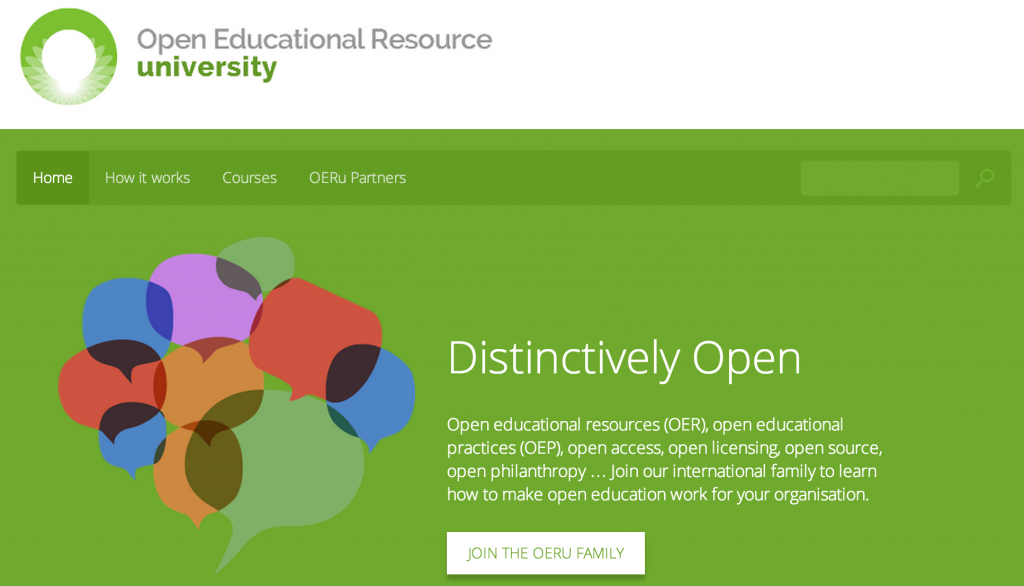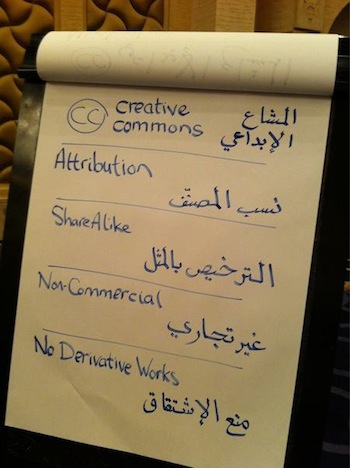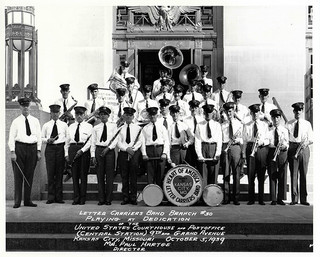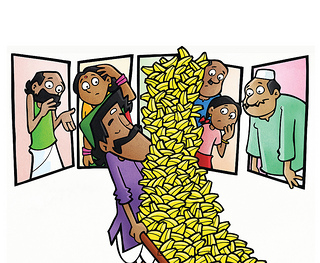OERu Launches Worldwide
mardi 5 novembre 2013 à 01:29Providing free learning with pathways to formal credit, the OERu officially launched on Friday November 1, 2013 at Thompson Rivers University in Kamloops British Columbia. “In basing your learning and teaching on OER, you have an excellent opportunity to treat the minds of your students primarily as fires to be set alight rather than as vessels to be filled with the knowledge of just one teacher,” said Sir John Daniel, former UNESCO Assistant Director General of Education and open learning visionary.
Coordinated by the Open Education Resource Foundation, headquartered in New Zealand, the OERu is an independent, not-for-profit network that offers free online university courses for students worldwide using open educational resources (OER). As a designated project of the UNESCO-COL OER Chair network and with over thirty-two partners from five continents, the OERu is using OER to provide more affordable ways for learners to gain academic credit towards qualifications from recognized, accredited institutions.
“The OERu makes affordable education accessible to everyone,” said Open Education Resource Foundation Director Dr. Wayne Mackintosh. “All you need is an internet connection and you can study independently from home, with access to world-class courses from recognized institutions around the world. It’s about sharing knowledge and the sustainability of education.”
Research from the Commonwealth of Learning and UNESCO predicts that an additional one hundred million post-secondary learners will be entering into the tertiary education system over the next fifteen years. “The key challenge we are trying to address is how to provide spaces for the additional one hundred million students – that’s the equivalent of building four sizeable universities with roughly 30,000 students each, every week for the next 15 years,” said Mackintosh. The OERu aims to provide students excluded from the formal education sector with learning pathways to credible credentials.
Coming at a time of dramatically rising higher education cost and high youth unemployment, the OERu provides a parallel learning universe based solely on OER, quality assurance, and institutional accreditation. The OERu sees OER as a key means of expanding and sustaining higher education and aims to see OER and open education practices integrated into every institution in the world.
The distinctively open aspects of the OERu, including its use of open-source software, open peer review, open public input, open file formats and open educational resources are key differentiators from MOOCs. Another major difference is the OERu’s commitment to providing students with the option of getting formal credit for their study for a small fee.
“The OERu will reduce the cost of higher education dramatically,” says Sir John Daniel. “I believe that radical innovations in higher education must be accompanied by particularly robust frameworks of accreditation and credentialing in order to reassure the public. It’s all very well for evangelists to promote do-it-yourself accreditation from the personal safety of CVs replete with reputable qualifications, but ordinary people want the ‘beef’ of proper recognition too.”
The OERu launch at Thompson Rivers University coincided with the second meeting of the OERu open network of partners including post-secondary institutions, nonprofits, government, and international agencies who all engaged in an intensive two-day implementation planning meeting. I was delighted to attend and contribute to the planning, including a summary of a two-week-long discussion exploring OERu’s unique differentiators, operations, micro-credentials, potential use of textbook zero, and quality assurance processes. Livestream recordings of the OERu launch and plenary meetings are available from the Thompson Rivers University live streaming channel.
At the time of launch, the OERu is offering two credentials – one undergraduate and one post-graduate and is experimenting with micro Open Online Courses – mOOCs. As an open network the OERu is expanding the courses and credentials it is offering and its partners. Organizations choose to join the OERu for three main reasons:
- to be part of a global network of “like-minded” institutions
- to participate in the philanthropic mission of widening access to more affordable education, especially for learners excluded from the formal higher education sector
- to learn new business models and retain a competitive advantage as open education approaches become more mainstream
As Estrella Patrick Moller First Nations Elder for the Secwepemc Nation put it in her OERu launch blessing, “I thank all of you for having big dreams… Help us to reach hundreds and hundreds and millions of people so that mother earth will be covered with people on an equal footing with education.”
Related links:
- Free Open Learning University Launches at TRU, CFJC TV, Kamloops, 1 November 2013.
- TRU joins free education movement. Online university combines resources from around the world. The Daily New, Kamloops, 1 November 2013.
- Open Educational Resource university is launched, University World News, 1 November 2013.
- The free university launching in NZ. TVNZ Breakfast, 2013
- The launch of OERu: Towards free learning opportunities for all students worldwide, BCcampus, 31 October 2013.
- Mooc rival OERu puts accreditation on menu, Times Higher Education, 31 October 2013.
- Polytech opens a door to the world, Otago Daily Times, 26 October 2013.
- Open Educational Resource university to be launched worldwide, 25 October, 2013.




